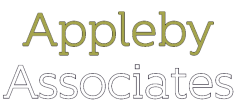Good listening is the key to interviewing well. It is tempting to start thinking about how you will respond to something that has been said before the interviewer has finished saying it.
Listen to the end, ensure you have understood the question, or the information given: it can be helpful to replay the key elements to the other person for confirmation and to prove you’ve understood. Don’t hesitate to ask clarifying questions if you need to, never guess at what is meant or answer the question you hoped they asked.
Dealing With a Real Problem
Make sure you understand the problem, write it down and talk it through with the manager to confirm. Don’t be scared to ask for more information if you believe it will help you give a better answer.
Don’t come up with obvious solutions: they may well already have been tried. Talk about things you’ve done before to demonstrate how you would tackle similar issues for them by highlighting your thought processes, your knowledge of the subject and how you work. Some elements are standard almost whatever the situation: gathering information, identifying options, consultation.
The principles to dealing with a real problem would be similar to how someone would respond to an interviewers question in an area of the job description in which the candidate feels that they are strong in – in that they are looking to create a collaborative and conversational environment.
Dealing with Sensitive Questions
What constitutes a sensitive question will vary from person to person. Be aware of the potentially difficult areas for you and be ready for them. Examples include gaps in the CV, protracted illness, termination of previous employment, lack of qualifications, lack of directly relevant experience, several jobs in a short period etc.
You must always answer truthfully any question you are asked, but you need not volunteer information that will count against you. For example, you need not say unless you are asked that you were dismissed, you can of course choose your wording: i.e., avoiding the word ‘dismissal’ or ‘fired’ and substitute with ‘ We mutually agreed to part ways.’
The principles to dealing with sensitive questions would be very similar to how someone would respond to an interviewers question in an area which the candidate feels weak in – they need to respond to reassure but want to move away from that area quickly and into areas where they will add value.
Dealing with Unusual or Strange Questions
These questions can be a challenge to answer since they’re unexpected. This is intentional on the interviewer’s part as they want to see how you handle a question where you don’t have a rehearsed answer, so that they can see how you perform under stress.
These questions are typically designed not to have a right or wrong answer, but more to get an insight into your thought process.
If you are asked an unexpected question, don’t panic, stay calm and think about the job. Remember that interview questions are designed to determine whether you have the skills required. As you answer a question, think about answering in such a way that demonstrates a skill or quality you have that qualifies you for the job.
Due to the unique nature of these questions, the chances of you coming across the same one twice is extremely unlikely, however, regardless of how they are presented, generally they will be falling into broad areas around:
culture and values, “What do you think of garden gnomes?”
deductive reasoning, “Why are manholes round?“
lateral thinking, “How would you solve problems if you were from Mars?”
and common sense, “How would you design a spice rack for the blind?”
With these types of questions, make sure you understand what the interviewer is looking for. For example, if someone were asked if they could be an animal, which one would they be? They could push back by asking the interviewer do they want to know which is their favourite animal? Which animal they associate themselves with? Which animal is closest to their business persona? or which animal is the most impressive? If the latter it would be a Puffin due to their ability to fly in the air and underwater and live on dry land, pretty remarkable for a such a small bird that has a clowns face!
Closing the Interview
Towards the end of the interview, the interviewer often asks if you have any questions for them. Use this time to double check that all the questions you wanted to ask have been dealt with. If you have some left, now is the time to ask them, especially if by doing so, it takes the conversation back into areas that you know you are strong in.
It is also useful to use this time to summarise back to the interviewer your take on the conversation, reminding them of what has been covered, your ability to do the job and your fit in relation to the team and company.
Before the close of the interview, you need to be clear on what happens next, the timescale and where you stand. The interviewer may have outlined the process and explained the next step, but you may want more information.
Make sure that you know when a decision will be made, as you will need to call around that time. However, do not say that you will call as you may be asked not to.
At the end of the interview, say you have enjoyed the meeting. Let them know that you feel there is a good fit and tell them you are excited by the job.
If you would like to find out more about this topic, contact us to book your free 90 minute personal 1:1 career consultation:

